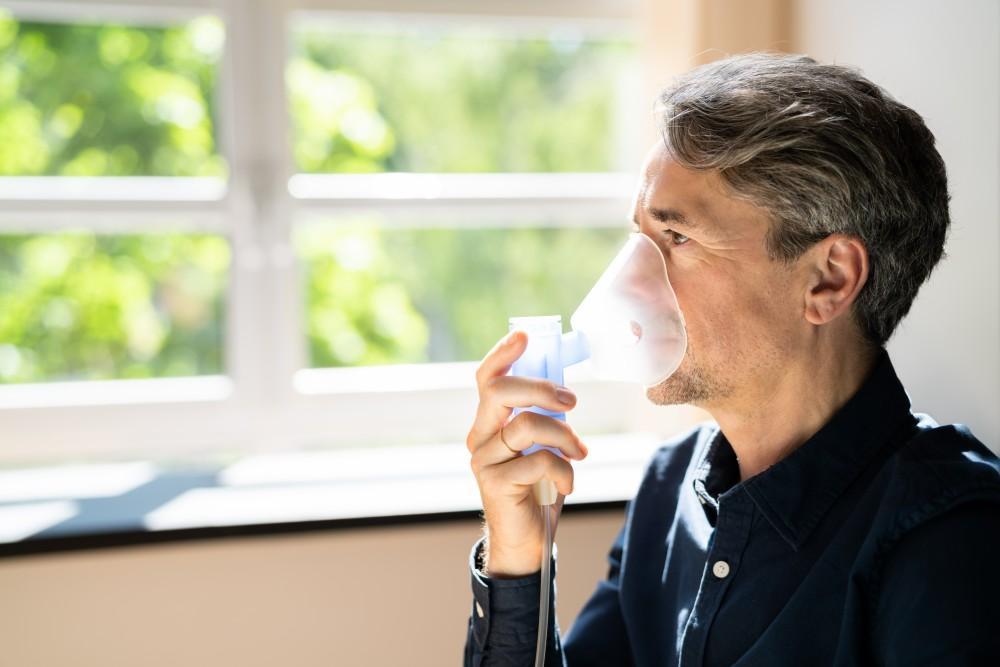About 30,000 Americans have cystic fibrosis, a chronic genetic disorder that may impact your respiratory and digestive systems. It’s caused by a mutation in your CFTR gene, which triggers various organs in your body to produce thick, sticky mucus, which interferes with organs’ normal function.
Your lungs are among the most critical organs affected by cystic fibrosis, and it’s important to take a proactive approach to your respiratory health. David Kamelhar, MD, Eric Teller, MD, and our team at Kamelhar-Teller Pulmonology offer advanced lung care, and we’re here to help you understand what your condition means for your lungs.
How cystic fibrosis affects your lung health
In healthy individuals s without cystic fibrosis, a thin layer of mucus naturally lines the airways or bronchial tubes This mucus helps trap and remove foreign particles, such as dust and bacteria.
If an individual has cystic fibrosis, the CFTR gene mutation disrupts mucus-producing cells. The mucus that your cells make is thicker and stickier than healthy mucus, and it clogs your airways.
Excessive mucus and clogged airways from cystic fibrosis increase your risk of a number of respiratory problems. One of the most common issues is recurrent lung infections. Trapped mucus creates an ideal environment for bacteria, leading to frequent bouts of pneumonia and bronchitis. Over time, these infections can cause permanent lung damage.
Another common complication of cystic fibrosis is bronchiectasis. This condition develops when chronic inflammation and infection damage your airway walls. It makes your bronchial tubes less able to clear infecting bacteria. . it can further worsen lung function and increase your risk of other complications related to difficulty breathing and difficulty with activity and exercise.
Caring for your lungs with cystic fibrosis
Cystic fibrosis increases your risk of respiratory problems, but proactive management helps you enjoy better health. We work with you to find effective treatment, with the goals of alleviating chronic symptoms, preventing acute bronchial infections, and improving your overall lung function.
Depending on your situation, Dr. Kamelhar and Dr. Teller may recommend:
Consultation with a cystic fibrosis specialist
There are currently several medications that can be used to replace theprotein that is missing in a CF patient. . Because there are new genetic forms of cystic fibrosis that are still being discovered, the doctors at Kamelhar-Teller work with specialists at leading cystic fibrosis the most up-to-date treatment.
Airway clearance therapy
Airway clearance techniques aim to loosen and remove the thick mucus from your airways. The mainstay of management of all forms of bronchiectasis, including cystic fibrosis(CF) and non-CFbronchiectasis is airway clearance. It typically consists of inhaling a vapor form of concentrated salt solution to loosen the mucus followed by use of use of a device that causes vibration of that looser mucus. The patient is then better able to free it from his or her chest and spit it out. Additional examples include chest physiotherapy, when a respiratory therapist uses percussion and vibration to facilitate mucus clearance, and high-frequency chest wall oscillation devices, which create vibrations to dislodge mucus.Medications
Several medications are available to address specific cystic fibrosis symptoms and complications. Bronchodilators help relax your airway muscles and improve breathing, and mucolytics help thin the mucus, making it easier to clear. If you get recurrent lung infections, we may prescribe antibiotics.Regular exercise
If you have cystic fibrosis, regular exercise is essential. Physical activity helps improve lung function and strengthens your respiratory muscles. Aerobic activities like cycling, swimming, and jogging can be particularly beneficial.
Remember that your pulmonology providers are just one part of your health care team. It’s important to work closely with a multidisciplinary health care team, including nutritionists and physiotherapists to achieve and maintain optimal lung health.
Cystic fibrosis can significantly impact your lung health, but you have options. Advancements in treatment can help you effectively manage your condition, and we’re here to help.
Schedule your first appointment at Kamelhar-Teller Pulmonology in Midtown East, New York, New York, at 212-685-6611 or request an appointment online now.



